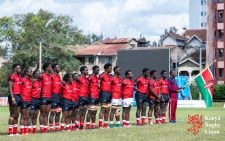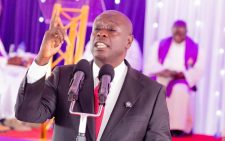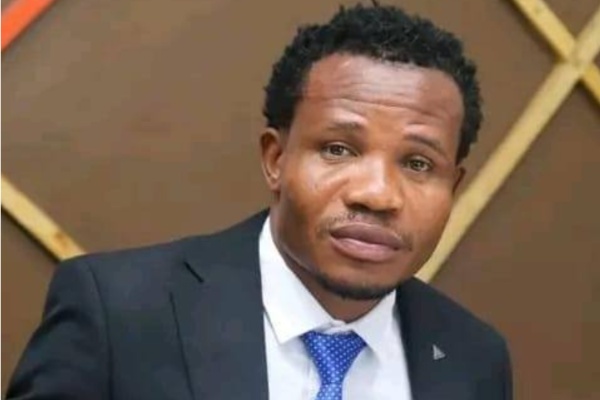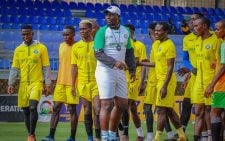Havi sustains CJ Koome, Supreme Court judges fight
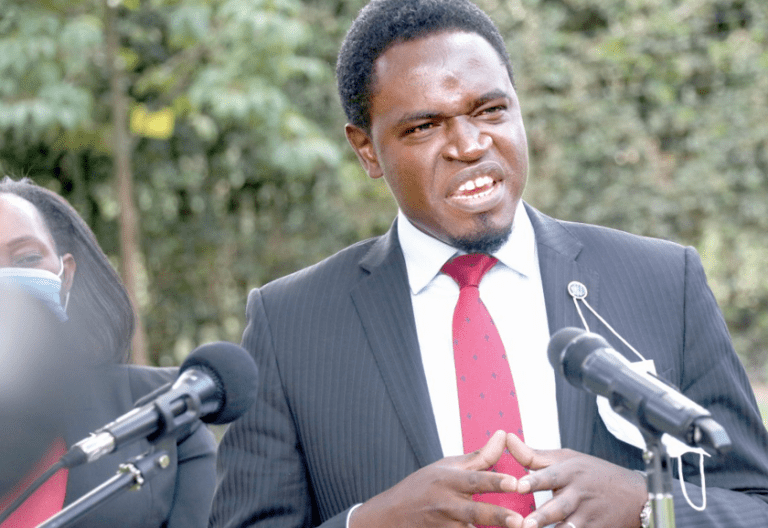
Former Law Society of Kenya (LSK) President Nelson Havi has sustained his onslaught on the Judiciary and is now calling for the removal of Chief Justice Martha Koome and all the Supreme Court judges.
Havi filed a petition to the Judiciary Service Commission (JSC) and urged the Commission to compel President William Ruto to form a tribunal and begin the process of firing the seven, accusing them of gross misconduct.
According to Havi, there is reasonable apprehension in the legal fraternity and the general public that the recent practice of the Supreme Court of Kenya entertaining and determining appeals from the Court of Appeal on civil and commercial matters where colossal amounts of money is involved but which have no novel question of general public importance, is motivated by corruption.
“I swear this Affidavit in support of the complaint against Justices Martha Karambu Koome, Philomena Mbete Mwilu, Mohammed Khadar Ibrahim, (Dr) Smokin C Wanjala, Njoki Ndungu, Isaac Lenaola and William Ouko and ask that the Judicial Service Commission recommends to the President of the Republic of Kenya the formation of a Tribunal to remove the Judges from office,” part of the affidavit read.
Lost confidence
Havi claims that there is a general consensus in the legal fraternity within the country that “the public has lost confidence in the Supreme Court as a result of its decisions.”
“The Chief Justice of the Republic of Kenya and judges of the Supreme Court like Ceaser’s wife, ought not to even be under suspicion of corruption,” he says.
Among the complaints he has listed concerning CJ Koome is the lack of leadership and direction as expected of a Chief Justice, especially compared to former CJ Evans Gicheru.
“Unlike Honourable Mr Justice Evans Gicheru, Honourable Lady Justice Martha Karambu Koome has failed to provide leadership and direction for the Supreme Court of Kenya and the entire Judiciary,” his statement read.
Havi claims that he has come to believe allegations made by Senior Counsel Ahmednasir Abdullahi that four of the Supreme Court judges had been bribed in their handling of the presidential election petition.
“I have demonstrated with instances herein above, how the seven judges of the Supreme Court have purported to enact laws to suit their interests, curtail and limit fundamental rights and freedoms, alter legal doctrines and principles, constituted themselves claimants in causes and proceeded to adjudicate those cause in disregard of trite law and express constitutional and statutory provisions knowing well that there is no repreive to their unlawful actions and decisions,” he says.
Determines appeal
Havi also says the recent practice by the Supreme Court to entertain and determines appeals from the Court of Appeal on civil and commercial matters involving colossal sums of money have left fears of their possible involvement in corruption.
“I do not understand what would motivate Judges of the Supreme Court if not corruption, to relegate themselves to the level of a Taxing Officer and start determining the quantum of instruction fees , a matter where no novel question of public importance is involved,” he states.
He cites the case of Kenya Airports Authority versus Otieno Ragot and Company Advocates (2024) eKLR where Justices Koome, Ibrahim, Wanjala, Njoki and Lenaola allegedly unlawfully execised jurisdiction over a civil matter and altered a settled private law on ascertainment of instruction fees.
He also cites the case of Geo Chem Middle East versus Kenya Bureau of Standards (2020) eKLR where Justice Mwilu, Ibrahim, Wanjala, Njoki and Lenaola declared themselves not to have jurisdiction over the matter and yet went ahead to determine it instead of disqualifying themselves.
Havi, Senior Counsel Ahmednasir Abdullahi and other senior lawyers have been calling for the resignation of CJ Koome for months citing deep-rooted corruption in the institution.
Assume jurisdiction
Havi was yesterday supported by Ahmednasir who, in a post on X, said the judges of the Supreme Court blatantly lie and assume jurisdiction when the Court in law has no jurisdiction to hear the petitions.
“The Court is paid crazy money to assume jurisdiction and the deal ALWAYS is to overturn the judgment of the Court of Appeal,” he posted.
Havi also referred to a 2022 contempt of court ruling in which he, alongside his Assisting Counsel Esther Ang’awa and fellow SC Ahmednassir, were convicted.
“To that end, when the petition challenging the election of President William Ruto was filed, the seven Judges of the Supreme Court of Kenya acting through Honourable Lady Justice Martha Karambu Koome sent a message that the two of us I should not appear in the matter. We obliged and stayed away, ” Havi says in his petition.
However, fresh details have emerged regarding the heightened clamour for changes in the Judiciary orchestrated by the two who were once sworn enemies.
Ahmednasir initially kicked off the campaign on a revenge mission against CJ Koome and other Supreme Court judges after they barred him from ever appearing before them.
This followed his endless attacks on the judges, whom he accused of corruption and incompetence.
Critics of Ahmednassir have revealed that as a strong supporter of President William Ruto, he has to recruit an impressive array of supporters who saw the benefit of destabilising the Judiciary ahead of the 2027 elections, and several senior lawyers who themselves had personal beef against the Judiciary leadership.
Some of his colleagues say Grand Mullah’s beef with the Judiciary has been due to his desire to wield control over the courts at the highest level.
His career has been characterized by controversies. In 2014 for example, the LSK sought to suspend him from practising law for six months for insulting a judge. This decision was later overturned on appeal.
Reports indicate that he has been using threats, judicial blackmail, and government connections to manipulate outcomes.
Equally, Judiciary employees have even accused him of bullying them and spreading false accusations of corruption against judges when they refuse to be compromised.
Ahmeddnassir’s name has also been linked to a Somali group which was accused of laundering ransom money paid to Somali pirates. It was Ahmednasir’s law firm that represented members of these cartels amid suspicion that he was used to launder the money. In an interview with a local media house in September 2021, Ahmednasir acknowledged that the allegations of his ties with the Somali pirates were known at the highest levels of government and because of that President Mwai Kibaki’s State House was initially opposed to him sitting in the Judicial Service Commission.



